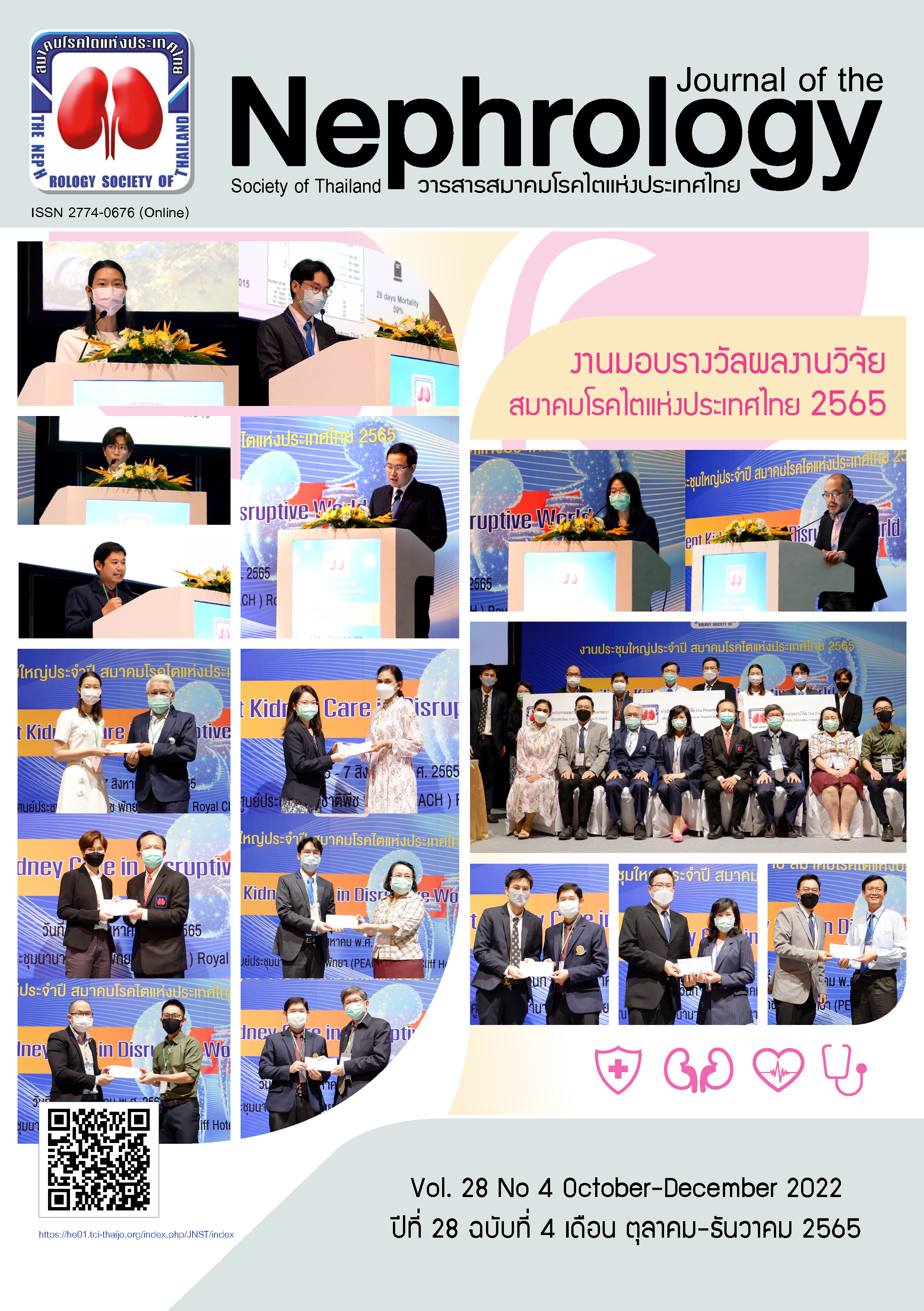Durability of Humoral and Cellular Immunity after an Extended Primary Series with Heterologous Inactivated SARS-CoV-2 Prime-Boost and ChAdOx1 nCoV-19 in Dialysis Patients
Main Article Content
Abstract
Background: The durability of a three-dose extended primary series of COVID-9 vaccine in dialysis patients remains unknown.
Methods: We prospectively assessed dynamic changes in SARS-CoV-2-specific humoral and cell-mediated immunity at baseline, 3 months, and 6 months after the extended primary series in 29 hemodialyzed (HD) and 28 peritoneal dialyzed (PD) patients and 14 healthy controls. Participants received two doses of inactivated SARS-CoV-2 vaccine followed by a dose of ChAdOx1 nCoV-19 vaccine, 4 weeks apart. Predictors of loss of humoral seroprotection against SARS-CoV-2 alpha variant (anti-spike receptor binding domain [anti-RBD] IgG titers of <506 BAU/ml) at 3 months were identified.
Results: At 3 months, 59% of HD patients and 32% of PD patients were seroprotected. At 6 months, median anti-RBD IgG titers (IQR) significantly declined from baseline in the HD [1741 (1136–3083) BAU/ml vs. 373 (188–607) BAU/ml] and PD [1093 (617–1911) BAU/ml vs. 180 (126–320) BAU/ml] groups, as did the mean percent inhibition of neutralizing antibodies (HD: 96% vs. 81%; PD: 95% vs. 73%) (all P < 0.01). Age and post-vaccination serological response intensity were predictors of early humoral seroprotection loss. In contrast, cell-mediated immunity remained unchanged at 6 months.
Conclusions: Humoral immunity declined substantially in dialysis patients, while cell-mediated immunity remained stable 6 months after the extended heterologous primary series of two inactivated SARS-CoV-2/ChAdOx1 nCoV-19 vaccine. A booster dose could be considered in dialysis patients 3 months after this unique regimen, particularly in the elderly or those with a modest initial humoral response.
Article Details

This work is licensed under a Creative Commons Attribution-NonCommercial-NoDerivatives 4.0 International License.
This article is published under CC BY-NC-ND 4.0 license, which allows for non-commercial reuse of the published paper as long as the published paper is fully attributed. Anyone can share (copy and redistribute) the material in any medium or format without having to ask permission from the author or the Nephrology Society of Thailand.
References
N/A


